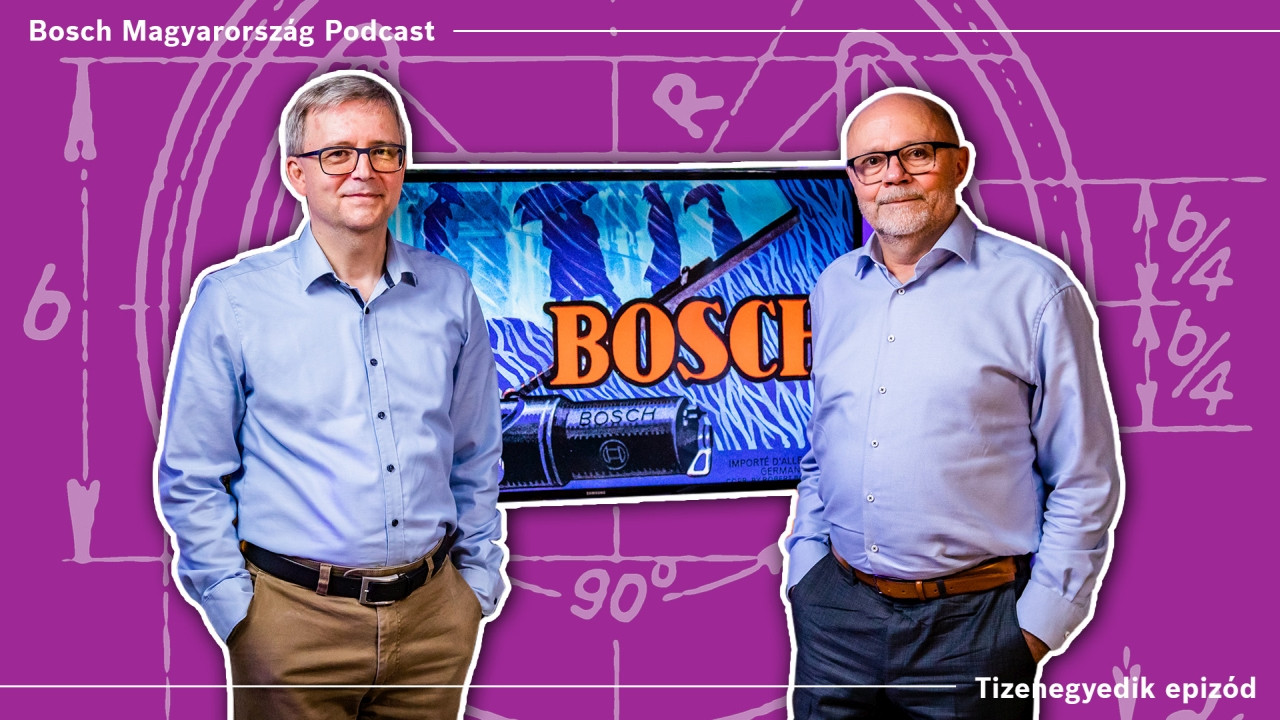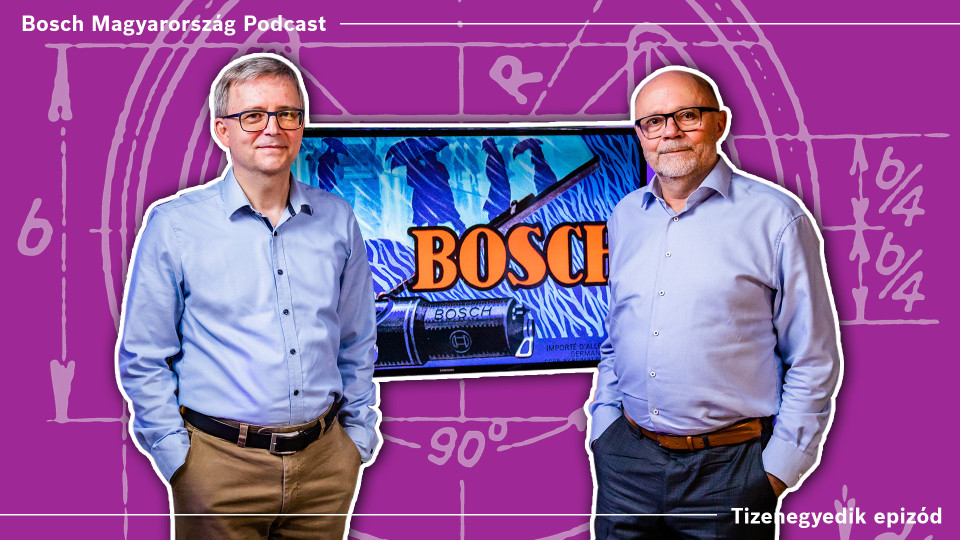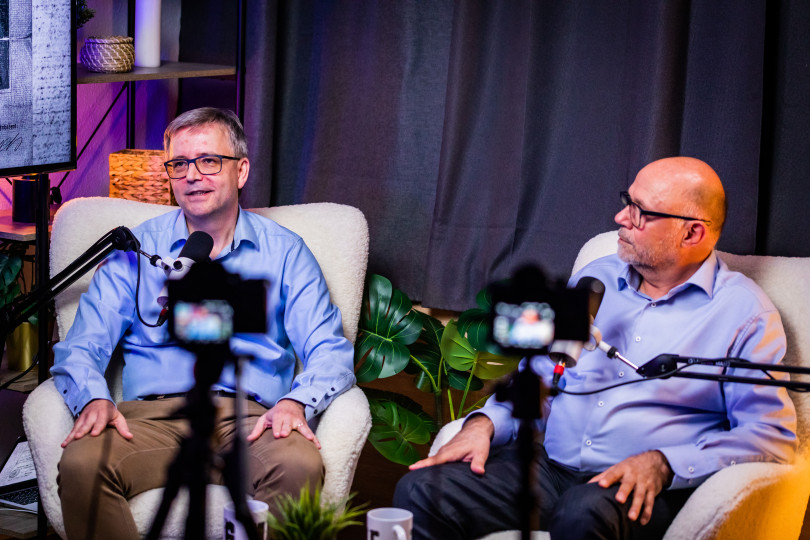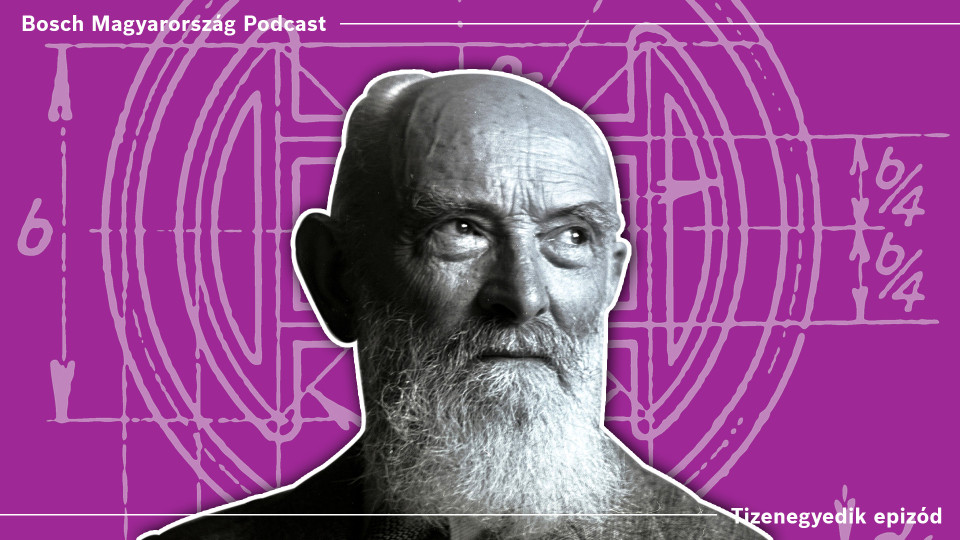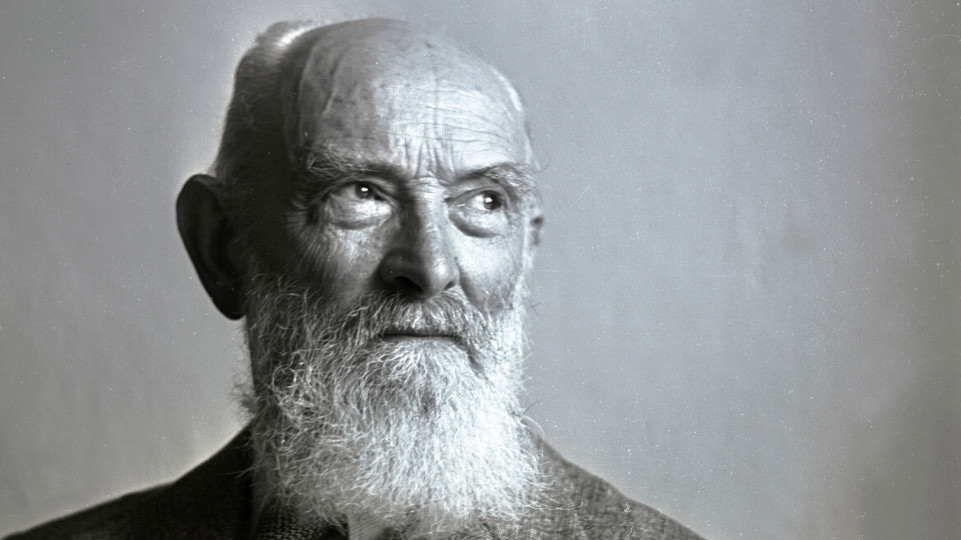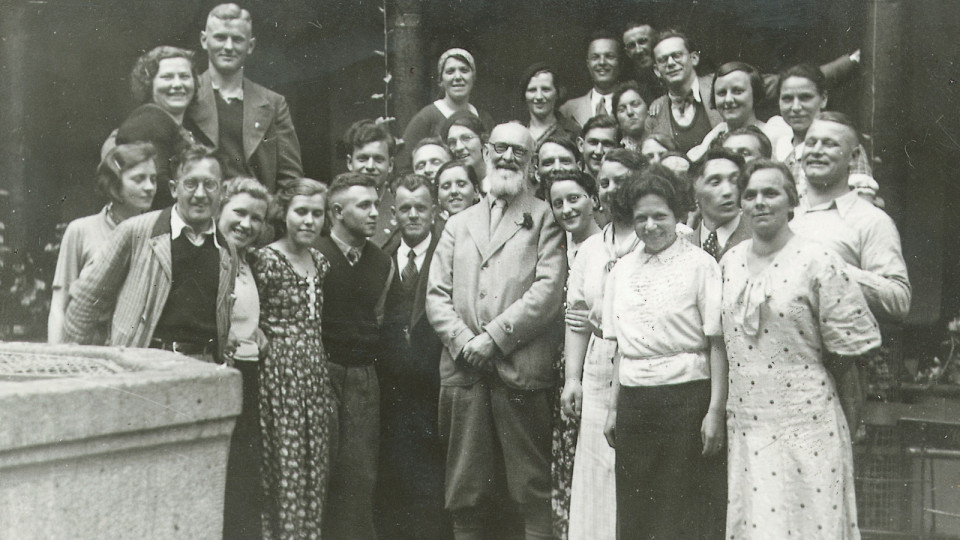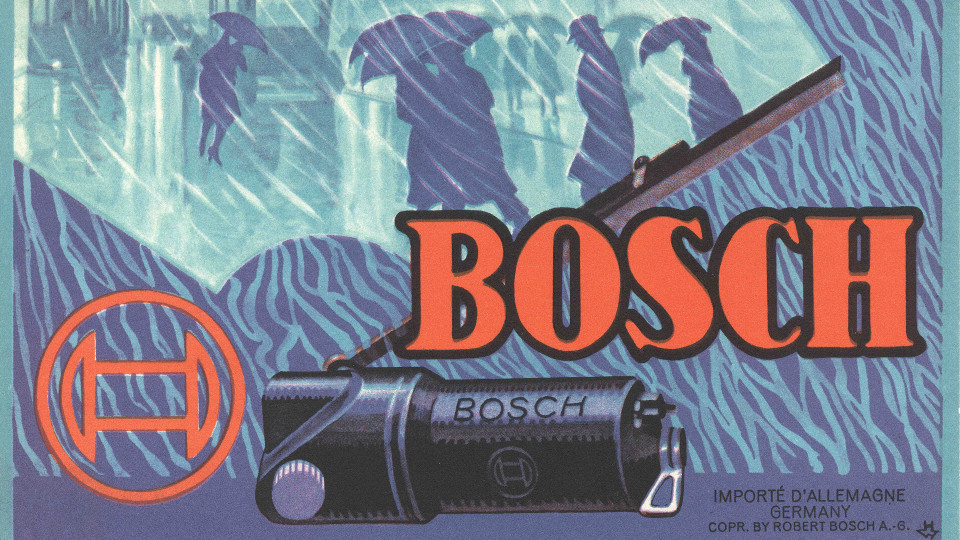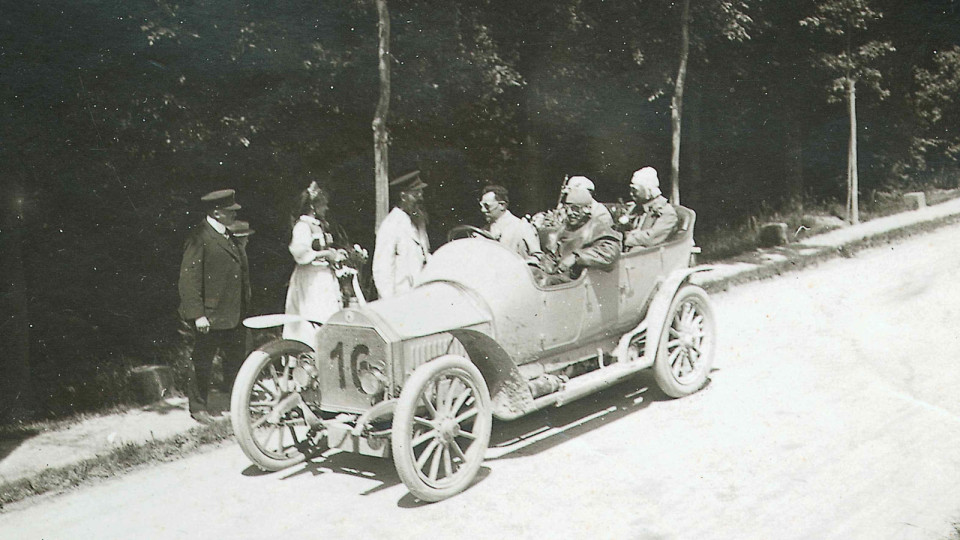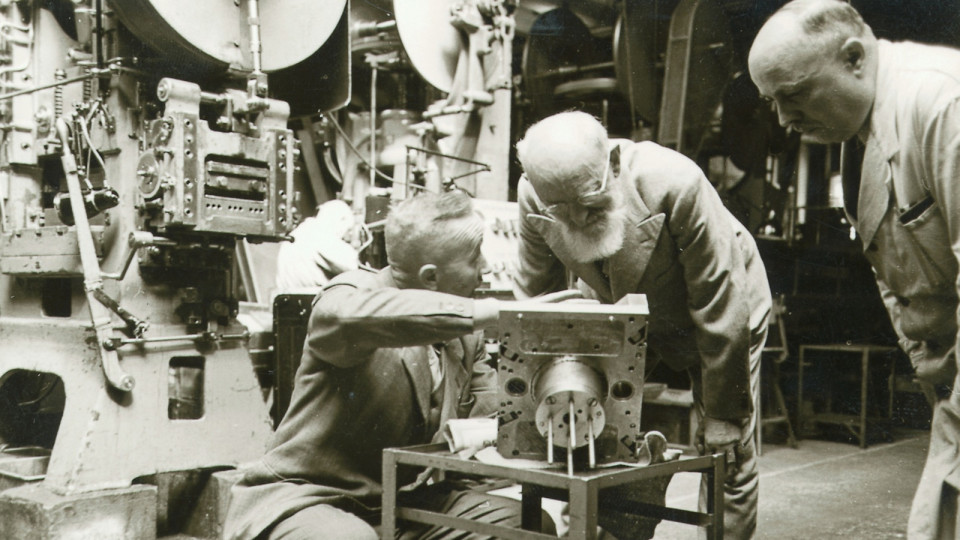There are many legends surrounding Robert Bosch. Was the founder of the major company known for its world-beating innovations a tough businessman of his time, a caring benefactor, or was he more of a ‘stubborn Swabian’? Who was he and what legacy did he leave behind? In the latest episode of the Bosch Hungary Podcast, we take you on a taboo-busting journey back in time to the heyday of the automotive industry.
If the topic is the automotive industry, then Robert Bosch's name is inescapable. He is one of the most influential figures in the pioneering technologies of the 19th and 20th centuries, and it is thanks to him that the Bosch name has been synonymous with innovation for 140 years. The expert guests of the latest Bosch Hungary Podcast episode are following in the footsteps of a legend – the ‘father’ of magnetic ignition, headlights, direction indicators and windscreen wipers. Edit Tóth, digital media manager of the Bosch Group in Hungary hosts András Kemler, head of real estate management of the Bosch Group in Hungary and the Adriatic region, and Dr. Barna Hanula, internationally renowned expert in engine development and associate professor at Széchenyi István University. They discuss the founder's life, his vision, his innovative business philosophy that still holds up today and the most exciting moments in the history of the automotive industry.
The spark that started it all
In 1886, aged just 25, Robert Bosch, with a business partner, founded his first company, a precision mechanics workshop. “To modern eyes, they were doing simple tasks back then, they were fabricating bells, telephones and selling medical equipment,” reveals András Kemler about the ‘heroic age’ in the podcast. It was during this period that his revolutionary innovation, the magnetic ignition, ‘the first spark’, was born, leading to a radical change in the automotive industry and in the life of the company.
Trying the impossible
“Magnetic ignition was essential for high-revving engines, which made the birth of the automotive industry possible,” adds András Kemler. Robert Bosch had the good sense to enter an industry that was just emerging at the time. To succeed, he also needed a good dose of courage: Bosch did not turn down challenges that at first seemed impossible, and he was committed to the belief that everything could be achieved through ingenuity, diligence and discipline. “It may seem trivial today, but at a time when electricity was barely known, introducing an electric spark into an engine with a combustion chamber of more than 2,000 °C was no easy task,” Barna Hanula points out during the conversation.
Invented for life: always ahead of the trends
Robert Bosch travelled a lot from the beginning and his experiences were an important inspiration for running the company. He recognized that he should not rely solely on existing successes and constantly looked for new directions, always placing great emphasis on development. “It is a forward-looking fact that Bosch had a team of innovation experts as early as the 1930s, who monitored industry trends and made suggestions on areas to invest in, inventions to make, and companies to acquire,” András Kemler says in the podcast.
Robert Bosch quickly realized that the company's long-term growth also required a broadening of the product range: the diversified portfolio he introduced is still the group's hallmark today. From hair trimmer to power tools and refrigerators, Bosch has been involved in almost everything powered by a motor. The technology was there, and the company was able to respond quickly to market changes using its existing know-how.
A new standard in employment
The podcast's expert guests agree that Robert Bosch owes much of his success to the ‘German virtues’ of precision, discipline, a commitment to quality, diligence and a ‘despite of everything’ attitude. “Bosch could also be described as a stubborn Swabian, a tough businessman who always stood up for his interests”, is one possible interpretation András Kemler suggests in the podcast. As always, however, there is another side to the story: unlike his competitors, the company founder placed great emphasis from the outset on the salary, well-being and training of his associates, as well as building trust. He founded a hospital and sanatorium with 400 beds – and not just for Bosch employees – and is also credited with the introduction of the 8-hour working day. Robert Bosch was ahead of his time, bringing an innovative approach not only to the automotive industry, but also to organizational development.
Robert Bosch believed deeply that his values and innovations were for the benefit of all people. It is in this spirit that Robert Bosch's legacy continues to be carried on today in the form of a foundation in a group that has evolved globally over nearly a century and a half.
Bosch Hungary Podcast: technology in plain language
The Bosch Hungary Podcast a quarterly show on the most current issues in innovation and R&D, with expert guests providing clear answers to the most pressing questions about the technology of the future. Those who want to learn more about Robert Bosch’s legacy, about his footprint in the automotive industry, can watch the show on YouTube or listen to it on Bosch Hungary's Spotify, Apple Podcasts and Simplecast podcast channels!
Zita Hella Varga
Phone: +36 70 667-6374
Bosch has been present in Hungary since 1898 with its products. After its re-establishment as a regional trading company in 1991, Bosch has grown into one of Hungary’s largest foreign industrial employers with currently eight subsidiaries. In fiscal 2023 it had total net sales of 2.207 billion forints and consolidated sales to third parties on the Hungarian market of 343 billion forints. The Bosch Group in Hungary employs more than 18,300 associates (as of December 31, 2023). In addition to its manufacturing, commercial and development business, Bosch has a network of sales and service operations that covers the entire country.
The Bosch Group is a leading global supplier of technology and services. It employs roughly 429,000 associates worldwide (as of December 31, 2023). The company generated sales of 91.6 billion euros in 2023. Its operations are divided into four business sectors: Mobility, Industrial Technology, Consumer Goods, and Energy and Building Technology. With its business activities, the company aims to use technology to help shape universal trends such as automation, electrification, digitalization, connectivity, and an orientation to sustainability. In this context, Bosch’s broad diversification across regions and industries strengthens its innovativeness and robustness. Bosch uses its proven expertise in sensor technology, software, and services to offer customers cross-domain solutions from a single source. It also applies its expertise in connectivity and artificial intelligence in order to develop and manufacture user-friendly, sustainable products. With technology that is “Invented for life,” Bosch wants to help improve quality of life and conserve natural resources. The Bosch Group comprises Robert Bosch GmbH and its roughly 470 subsidiary and regional companies in over 60 countries. Including sales and service partners, Bosch’s global manufacturing, engineering, and sales network covers nearly every country in the world. Bosch’s innovative strength is key to the company’s further development. At 136 locations across the globe, Bosch employs some 90,000 associates in research and development, of which nearly 48,000 are software engineers.
Additional information is available online at www.bosch.hu, iot.boschblog.hu, www.bosch.com, www.iot.bosch.com, www.bosch-press.com, www.twitter.com/BoschPresse

